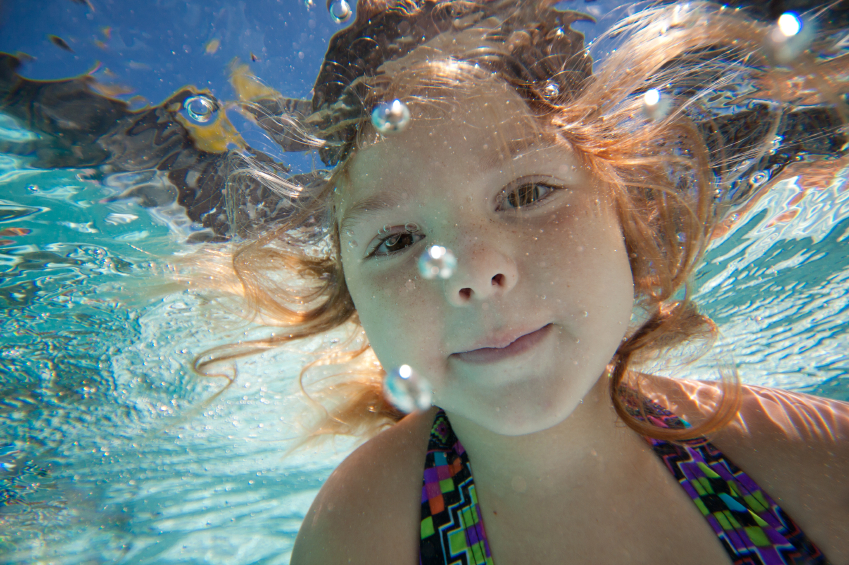
Can swim lessons be a safe haven from allergies?
Allergies of all kinds are serious. Food allergies seem to be most common and with the array of foods out there, managing allergies to them can be challenging.
If you think – well – all they have to do is carry their epipen to inject if they suffer anaphylaxis (a severe life-threatening type of allergic reaction that requires the use of an epinephrine auto-injector) …. think again.
A 13-year-old went into anaphylactic shock after accidentally biting into a rice crispy treat made with nuts. She will be fine, you think, because her father is a physician. She died after he attempted to save her using first Benadryl and then 3 epipen injections. There wasn’t anything anyone could do.
My attention here to allergies is all about keeping children safe – especially when they are in our pools. Understanding the potential severity of anaphylaxis and the things you can do to prevent reactions from happening, just makes your swimming environment a place where they can feel a little safer than everywhere else.
What’s the chance that a child in one of your classes will be allergic to something?
Actually it’s pretty high. Food allergies affect 1 in 13 children, nearly 6 million in the United States. It is an epidemic with no known cause and no known cure. For some people, a single bite of a food allergen, or even an insect sting, can cause anaphylaxis, a severe life-threatening type of allergic reaction that requires the use of an epinephrine auto-injector. People with food allergies often have asthma and eczema as well.
So how do swimming and food allergies overlap, you might ask?
Luckily, swimming pools are very safe for kids with food allergies because they are clean and allergen free. Swimming is a great form of exercise that improves one’s asthma health. The water adds moisture to dry skin and the chlorine also helps to control skin infections that can be caused by excessive scratching due to eczema.
Allergies are something that the sufferers must learn to live with. If you’re lucky enough to have no allergies, then you may not be very sympathetic to what they endure.
Here are a couple of stories to show you that managing allergies may not so simple.
A 12-year-old with a tree nut allergy is very mature about it and assumes the greatest part of the responsibility for her efforts. Last summer, she had a reaction while traveling and you might think that she was being careless. Well, no. She asked an employee and a restaurant manager about pizza ingredients – telling them the reason for her inquiries. And even then, she was given a pizza with cashews in or on it and was immediately rushed to the hospital when her allergic reaction ensued. No labels. No knowledge of food ingredients in the restaurant.
A 17-year-old with multiple allergies cannot dine out at all in her home state of Rhode Island because of the severity of her anaphylactic reactions. Restaurants in RI do not have to share detailed ingredient information. Because of her father’s job, her family began to dine in Massachusetts quite regularly and the family was pleasantly surprised to learn that that the state has a restaurant food allergy awareness law that requires restaurant staff to complete food allergy training.
What I learned is this: Regardless of how much information you have about your allergies, if the folks you are around (especially if you are consuming food they prepare) are not knowledgeable in this vein, you are out of luck. You may as well reserve that ambulance for the coming ride to the emergency room.
How delicate and sensitive can these be?
There are mothers who must wash their hands if they’ve been in the same room with particular nut varieties before picking up their children (who have nut allergies) from school. I would say that if this were my situation, I would be miserable.
These facts and anecdotes may help you to understand your “allergic” friends a little better – and to make sure their experience in your pool is enjoyable. If they have similar struggles to those noted above, the pool may be one of their few safe havens.
Here are a few tips for instructors – just in case children in your classes may have allergies – especially of the food type:
- Keep food and drinks away from the pool area (many schools make this a rule anyway)
- All instructors and assistants should wash their hands after eating or snacking. Simply touching someone with nut allergies after you eaten a few almonds could make for a really bad day for them.
- If you know that a child has allergies, inquire about them and ask them(or their parents) if there are special precautions that you should take.
- Make sure everyone on your staff is training in when and how to use an epinephrine auto-injector, such as an Epi-pen.
The main food allergens are peanut, tree nuts, milk, egg, wheat, soy, fish and shellfish. The list of “other” food and non-food allergens is as long as my arm. Learn about them.


Conversations